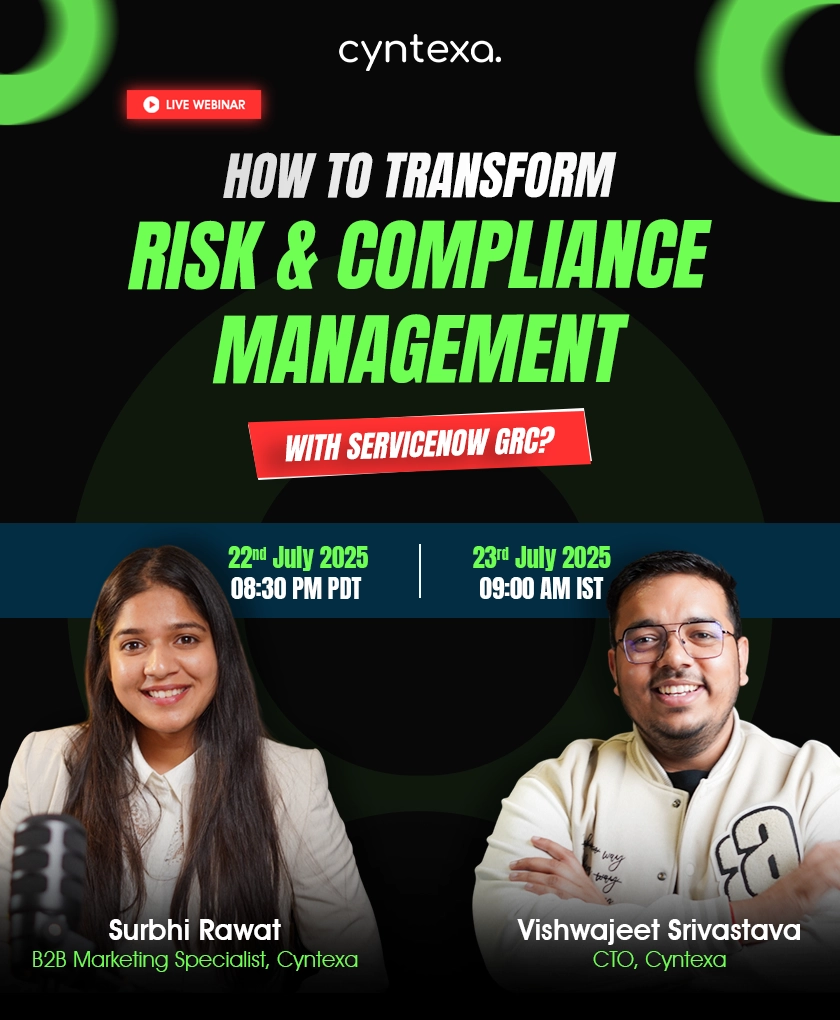Evolution of Artificial Intelligence in the Salesforce Ecosystem
Table of Contents
In 2014, Salesforce made a bold declaration: to become an AI-first company. Keeping artificial intelligence in the center, Salesforce looked forward to empowering businesses to achieve faster and smarter results. From its origin as a system of record to becoming a highly-used system of engagement and intelligence, Salesforce has established it at the core of their innovation.
From the launch of Salesforce Einstein in 2016 to the emergence of autonomous agents in the form of Agentforce in 2024, Salesforce has truly transformed how AI was meant to be. With more than 1 trillion transactions a week and trusted by 17% of the Fortune 100 companies, Einstein has contributed significantly to making Salesforce “the No. 1 AI CRM.”Over the years, Salesforce expanded its capabilities through acquisitions, large language models, and cutting-edge generative AI, giving customers a tool to always stay relevant with the market.
This was just the tip of the iceberg; there is a whole lot in the story of the evolution of artificial intelligence in the Salesforce ecosystem. This blog covers each touchpoint of the emergence and development of AI in Salesforce and how Salesforce AI is not just about technology—it’s about transforming business potential into reality.
From Predictive Analytics to Autonomous Agents: 3 Phases of AI in Salesforce


Salesforce AI has witnessed multiple waves of innovation, each time introducing new capabilities that provide businesses with nothing less than better. Here is a quick look at each wave of the AI revolution led by Salesforce and its impact:
1. Predictive AI: Establishing Intelligent Foundations
Salesforce started its journey in AI with predictive analytics with the launch of Einstein AI in 2016, which comprises of tools to analyze historical data and forecast future trends. As per a Salesforce report, 91% of small and medium businesses (SMBs) experienced a surge in revenue with AI adoption, indicating the financial benefits of predictive analytics. Here is what predictive AI of Salesforce offered:
- Lead scoring: Prioritizing leads based on their potential of conversion.
- Sales forecasting: Predicting future sales revenue to inform strategic planning.
- Next best action: Offering recommendation to sales and service teams in improving customer interactions.
The predictive AI capabilities enhanced decision-making among businesses through data-driven insights and improved efficiency as routine tasks are now automated and personalized interactions based on predictive insights, making Salesforce more than a record of intelligent systems of engagement.
2. Generative AI: Revolutionizing Content Creation and Interaction
Next came the era of Generative AI. Following the trends of generative capabilities, Salesforce ventured into generative AI by introducing Einstein GPT in TrailblazerDX2023. As per a Salesforce Generative AI survey, 73% of Indian population, 49% of Australian population, 45% of US population, and 29% of UK population are using generative AI. This indicates the high adoption rate of generative AI across countries, giving Einstein GPT an edge to remain competitive in the global market. Following is a quick highlight of what it offered to Salesforce users:
- Automated Content Creation: Creating personalized emails, reports, and marketing content.
- Dynamic customer insights: analyzing conversations with customers to extract and offer actionable intelligence.
- Advanced Chatbots: Delivering more natural and engaging interactions in customer services.
Generative AI allowed businesses to meet growing customer demands for personalized interactions, enhanced productivity, making them more dynamic and adaptable to what customer’s need.
3. Autonomous Agents: Pioneering Self-Directed AI
Moving ahead in the space of AI innovation, Salesforce led the third wave of the AI revolution with the announcement of autonomous agents in Dreamforce 2024. Using LLMs, Einstein Trust Layer, and Salesforce Data Cloud, these AI agents are capable of executing specialized tasks, giving both employees and customers a whole unified experience. Following are some of the core capabilities of these autonomous agents:
- Autonomous Functionality: Operate independently and automate tasks across business functions without human involvement.
- Real-Time Adaptability: Adjust action based on the real-time data and market conditions, keeping business agile and adaptable.
- Deep Language Understanding: Built with advanced NLP, these agents can interpret complex requests and provide contextually relevant responses from more human-like interactions.
- Customizability and Integration: Built on the Salesforce platform, Agentforce is easily customizable and can be integrated with existing Salesforce applications, enabling tailored solutions for specific business needs.
By 2025, the third wave of AI with Agentforce from Salesforce will significantly alter business operations. Expert AI agents working together will resolve complex problems, deliver individualized customer experiences, and automate work. Major business giants, including Saks, OpenTable, and IBM, are already using Agentforce to augment their workforce with “digital labor.”
That was not all; Salesforce introduced several products during these phases as part of their core innovation, empowering businesses with the best of all AI + CRM + Data.
Let’s discover how AI found its place in Salesforce ecosystem and what all products Salesforce launched to become the No. 1 AI CRM.
Evolution of AI In Salesforce Ecosystem


Let’s discover the story of AI in the Salesforce ecosystem:
2014: Strategic Shift to AI
With the vision of Marc Benioff, Salesforce made its first move in transforming the Salesforce ecosystem and providing businesses with intelligence-driven solutions by integrating AI in its CRM. By leveraging this, Salesforce sought to set an example of how differently organizations can interact with their customers, giving them an unforgettable experience, and for businesses, this move helped with smarter decision-making and automated processes.
RelateIQ Acquisition:
In 2014, Salesforce acquired RelateIQ for $390 million. It is an intelligent computing startup that helps businesses automatically capture data from email, calendars, and smartphone calls to provide data-driven insights in real-time. RelateIQ’s CRM tool helps teams work seamlessly by unifying contacts and capturing all client interactions. This ensures a “unified customer experience,” where salespeople can avoid the irrelevant emails and focus on the most recent and relevant conversation with a client. It also prioritizes tasks by highlighting clients needing immediate attention, flags unanswered emails, and shares LinkedIn and Twitter links with the team. With Salesforce.com’s acquisition of RelateIQ, these capabilities are set to enhance Salesforce’s leading CRM platform by adding a new layer of intelligence across sales, service, and marketing.
AI Integration into Salesforce CRM:
Salesforce made progress in integrating AI into its CRM tools, laying the groundwork for what would become its groundbreaking innovation in its history. Early stages of projects were focused on exploring machine learning algorithms, which led to the foundation of Einstein. This integration started with simple functionalities like lead scoring and customer segmentation, empowering businesses to make informed and data-driven decisions.
2015: Launch of Opportunity Scoring
2015 was continued with the announcement of the Opportunity Scoring model, which marked the first major AI-powered features in their CRM.
Key Developments:
Opportunity Scoring was designed to use predictive analytics to identify and prioritize sales opportunities that were most likely to close. By closely analyzing past data and trends, this innovation helped sales teams make better decisions. As a result, businesses saw an improvement in sales efficiency and productivity as sales professionals are now putting their efforts on high-value opportunities. Here is how opportunity scoring works:
- Data Analysis: Analyzes historical sales data, including past deals, customer interactions, and various attributes of opportunities.
- Scoring System: Each sales opportunity is assigned a score between 1 and 99. Higher scores reflect a greater likelihood of conversion, guiding sales reps to focus on the most promising leads.
- Actionable Insights: Provide insights into the factors influencing each score, helping sales teams understand why certain opportunities are prioritized and where they may need additional effort.
- Integration: Opportunity Scoring is integrated within the Salesforce ecosystem, allowing for seamless use in forecasting and reporting, enhancing overall sales strategy.
This real-time application of Opportunity Scoring not only enhanced lead management but also facilitated better forecasting and resource allocation, ultimately driving revenue growth for the business.
2016: Launch of Salesforce Einstein
2016 was the year of breakthrough for Salesforce, as they announced the launch of Einstein in Dreamforce 2016. It is a comprehensive suite of AI-powered features natively available in the Salesforce platform.
Key Developments:
Einstein AI for Sales, Service, and Marketing:
Einstein AI was designed primarily to generate insights, automate tasks, and empower teams using Sales Cloud, Service Cloud and Marketing Cloud with better decision-making.
- Predictive Lead Scoring: Allowing the sales team to prioritize leads more effectively using past data and analyzing the leads with more possibility of conversion.
- Automated Responses: With natural language processing (NLP), users can generate automatic responses for customer inquiries, simplifying communication and improving response times.
- Analytics tools: Einstein also offered advanced analytics, giving an added advantage to businesses to dig deeper into their data and make the most of it.
Einstein was just Salesforce getting started. Salesforce has planned to bring a lot more than anticipated in the coming years.
2017: Taking AI Services to Next Level
2017 marked the expansion of Einstein’s capabilities with the launch of Einstein Vision and Einstein Voice, further enhancing the Salesforce ecosystem by adding image recognition and voice capabilities.
Key Developments:
- Einstein Voice: Announced on March 7, 2017, this product was designed to enable users to interact with Salesforce applications using voice commands, enhancing accessibility and user experience.
- Einstein Vision: Tagged along with the Einstein Vision, it brought advanced image recognition capabilities to the Salesforce platform, allowing developers to build applications using computer vision technology.
- Sales Cloud Einstein Forecasting: Introduced in September 2017, it utilized self-learning algorithms to deliver sales forecasts accurately, assisting sales leaders to predict revenue at every stage of the sales cycle.
- Einstein Turns 1: Einstein celebrated its first anniversary in September 2017, reportedly delivering 475 million AI-powered predictions daily, highlighting its trust and impact on customers.
- Einstein Email Insights: This feature identifies important email for sales reps, improving their ability to respond effectively and efficiently.
- Partnership with IBM: Salesforce partnered with IBM to integrate IBM Watson with Einstein to enhance intelligent customer engagement across different business operations. The collaboration aimed to take Salesforce’s cognitive capabilities one step further, bringing more advanced insights and data analysis features into the platform.
- Service Cloud Einstein: Salesforce integrated Einstein with Service Cloud for improving customer service operations, agent productivity, and providing a more efficient omni-channel service experience.
- Commerce Cloud Einstein: Launched in 2017, Salesforce extended its Commerce Cloud with Einstein capabilities along with features like Einstein Predictive Sort that enhances product searches with machine learning working in the backend.
- New AI Services: Salesforce introduced three more features: Einstein Sentiment, which analyzes social media text for public sentiment; Einstein Intent, which navigates customer inquiries; and Einstein Object Discovery, which focuses on an image recognition model.
Salesforce announced a $50 million AI Innovation Fund aimed at accelerating the development of transformative AI solutions on the Salesforce platform.
2018: Powering Einstein With More Innovation
2018 was one of the years where Einstein was powered with several features and functionalities. Here are some of the key innovations:
1. Einstein Voice:
Announced on September 20, 2018, this product was designed to enable users to interact with Salesforce applications using voice commands, enhancing accessibility and user experience. Users can dictate updated conversations directly into the Salesforce Mobile App, which helps them automatically structure the unstructured voice data into actionable insights. It also provides users with custom readouts of key metrics and priorities via their preferred voice assistant.
Lightning Flow for Service provided tools to design and automate the entire customer engagement process. Einstein Next Best Action, on the other hand, delivers intelligent recommendations and offers for customers.
2. Einstein Segmentation
This feature was made generally available in August 2018. It assisted marketers in creating targeted customer segments using AI-driven insights, making personalization easy to add in campaigns.
3. Einstein Analytics Plus
Got spotlighted in Dreamforce 2018, this offering was a mix of both Einstein Analytics Platform and Einstein Discovery, helping teams with advanced analytics capabilities.
2019: Einstein’s Capabilities are expanded
In 2019, Salesforce added some more features and innovations to its Einstein AI framework:
1. Einstein Services
Introduced in April, 2019, these services were introduced to help admins and developers to create custom AI solutions with low-code or no code. It included various machine learning functionalities like sentiment analysis, image recognition, and intent detection. Developers can easily deploy these services using one line code, which sped up their integration into Salesforce applications without requiring extensive skills.
2. Einstein Translation
As a crucial part of Einstein Services, this feature allows automatic language translation for any objects or fields in Salesforce. Admins can set this up for translating inbound customer queries into the language preferred by the service agent at time, improving communication and enabling a seamless customer experience by aligning the queries with the agent’s native language.
3. Einstein Optical Character Recognition (OCR)
Another addition that came with these services is Einstein OCR. It uses computer vision technology that analyzes documents and extracts relevant data. By automating repetitive tasks like data entry by converting images of documents into structured text. It supports real-time data validation, improving accuracy and integrity. This feature seamlessly integrates within the Salesforce ecosystem; it enables quick access to extracted data, ultimately enhancing customer service and allowing businesses to scale their operations effectively.
4. Einstein Analytics for Financial Services
Brought into the spotlight in May 2019, this solution provides AI-powered insights specifically designed for financial institutions and service providers. Financial advisors can benefit from predictive guidance on client behaviors, like when a client is likely to increase their assets or churn.
5. Einstein Prediction Builder
This tool allowed businesses to create their own AI models based on their specific data without requiring any coding skills. This shift to no-code AI made it easier for non-technical users to leverage machine learning and predictive analytics to solve business problems and drive better outcomes.
2020-2022: Continuous Enhancements & Focus on Generative AI
From 2020 to 2022, Salesforce put its efforts into continuously improving Einstein’s capabilities and discovering the potential of generative AI in its ecosystem.
1. Einstein Call Coaching
It is an AI-driven feature that gives a forward push in productivity and effectiveness of the sales team by equipping them with insights of customer conversations. With Natural Language Processing (NLP) and Automatic Speech Recognition (ASR), it assesses sales calls to define the important moments like pricing discussions, customer’s concerns, etc. This feature enables sales managers to coach their sales executives effectively based on real interactions.
2. Einstein Automate
It is an end-to-end workflow automation solution that empowers organizations to streamline their processes without needing extensive coding skills. It comes with features like Flow Orchestrator that allow users to create complex workflows, automating several tasks across systems.
3. Generative AI Exploration:
With the rise of Generative AI technologies, Salesforce set its foot in exploring how to integrate these innovations into their CRM. Their primary goal is to focus on automated content creation, improving customer communication, and creating smart marketing strategies.
2023: Launch of Salesforce Einstein GPT
2023 witnessed the emergence and growth of generative AI technology in Salesforce.
Einstein GPT:
By launching Einstein GPT in March 2023, Salesforce introduced the first ever generative AI for CRM. Einstein GPT is an integrated, cutting-edge AI that upgrades the overall capabilities of several Salesforce CRM tools and redefines the way businesses interact with customers. Using data from Salesforce Data Cloud along with public data sources, Einstein GPT generates personalized communications for sales emails, customer service responses, and marketing materials. It also supported natural language generation (NLG) for reports and customer service communication, making interactions more natural and engaging.
AI Cloud:
Launched in June 2023, Salesforce AI Cloud is a powerful tool that leverages trusted, secured data to maximize the power of AI. It is built on top of Salesforce’s robust platforms like Service Cloud, ensuring that your AI capabilities are as strong as the data they are built on. This integration allows businesses to unlock the full potential of AI, enhancing customer service, personalization, and overall customer experience.
Einstein 1 Platform:
In September 2023, Salesforce introduced the Einstein 1 Platform, reinforcing its commitment to embedding AI across all aspects of its product offerings. The Einstein 1 Platform brought generative AI capabilities to developers, allowing for more customized, automated solutions. It is a generative AI conversational assistant for developers, assisting them in real time with code and automation tasks.
Together, these innovations demonstrate Salesforce’s commitment to integrating AI into its platform, providing businesses with powerful tools to enhance productivity, improve customer engagement, and streamline operations.


2024: Continued Advancements with Agentforce
In 2024, Salesforce exceeded the expectations of businesses by leading the third wave of AI revolution and designing AI based tools and products to power digital labor forces within the organization. Following are the key developments:
Einstein Copilot:
Released in public beta on February 27, 2024, and made generally available on April 25, 2024, Einstein Copilot is a customizable, conversational AI assistant for CRM. It generates responses using private company data and features grounding prompts in Data Cloud, out-of-the-box actions, and customization for specific business needs.
Einstein Copilot for Marketers and Merchants:
Unveiled on May 22, 2024, this extension of Einstein Copilot helps generate campaign briefs, personalized content, and promotions. It assists marketers and merchants with daily tasks, optimizing sales, guiding storefront setup, and generating product descriptions. The tool leverages trusted data to enhance customer engagement and streamline marketing and merchandising processes.
Einstein Personalization:
Announced on May 22, 2024, this AI-based decision engine leverages unified customer data profiles in Data Cloud to automatically trigger the next best interaction for customers. It uses product recommendations and goal-based and rule-based content targeting to deliver personalized experiences across Salesforce clouds, enhancing customer engagement and loyalty.
Data Cloud for Commerce:
Introduced on May 22, 2024, this feature unifies business and customer data to deliver smart insights for retailers. It helps launch personalized promotions, offers, and shopping experiences, enhancing customer loyalty and boosting sales. The tool integrates with Einstein Personalization to provide a comprehensive solution for data-driven commerce strategies.
Einstein 1 Studio:
Launched on March 6, 2024, Einstein 1 Studio is a suite of low-code tools for customizing AI experiences in Salesforce. It includes Copilot Builder, Prompt Builder, and Model Builder, enabling businesses to create personalized AI actions, build custom prompts, and import or build AI models. The platform integrates with Data Cloud, allowing users to embed AI across Salesforce apps and workflows, enhancing productivity and customer experiences.
Prompt Builder:
Introduced in Spring ’24, Prompt Builder allows admins to create dynamic prompts using Salesforce or Data Cloud data. It features comprehensive template ingredients, personalized prompts, and integration with Flow Builder, and real-time testing capabilities. Admins can create various prompt templates without coding knowledge.
Agentforce:
Unveiled at Dreamforce 2024, Agentforce is a platform for developing, customizing, and deploying autonomous AI agents across business functions. It includes low-code tools for rapid agent development, allowing users to create custom agents quickly. Agentforce integrates with other Salesforce products to automate routine tasks and enhance productivity.
Agentforce 2.0:
Launched on December 17, 2024, Agentforce 2.0 is an enhanced version of the digital labor platform. Key features include a new library of pre-built skills and workflow integrations, deployment in Slack for team collaboration, advancements in agentic reasoning, new CRM skills for agent-first customer experiences, MuleSoft integration for cross-system actions, and an enhanced Agent Builder for natural language instructions.
Agentforce Partner Network:
Announced on September 17, 2024, the Agentforce Partner Network is the world’s first agent ecosystem. It enables Salesforce’s AI agents to perform complex tasks across Salesforce and third-party systems. Partners can build and distribute new agent actions, pre-built agent templates, and specialized agents through Salesforce’s AppExchange. This open ecosystem extends Agentforce’s capabilities, allowing customers to customize out-of-the-box agents, build new agents with specific skills, or deploy partner-built agents for specialized industry use cases.
Atlas Reasoning Engine:
Part of Agentforce 2.0, the Atlas Reasoning Engine is an advanced AI system that enhances agents’ decision-making and task execution capabilities. It employs multiple large language models (LLMs), large action models (LAMs), and specialized RAG modules to perform distinct subtasks like ranking, refining, and synthesizing information. This engine enables AI agents to manage complex, multi-step processes with increased accuracy and precision, leading to state-of-the-art levels of trustable autonomy.
These innovations collectively demonstrate Salesforce’s commitment to integrating AI across its platform, enhancing productivity, customer engagement, and business operations throughout 2024 and early 2025.
Looking Forward
As AI continues to grow across different areas in the Salesforce ecosystem, it’s clear that this isn’t just a technological upgrade; it’s indeed a cultural and operational revolution. By 2025, AI will no longer be a “nice-to-have” but a necessity, quietly enhancing workflows, simplifying complexity, and empowering businesses to make smarter decisions in real time.
Yet, with this rapid progress comes the need for thoughtful planning—businesses must prioritize security, scalability, and the continuous development of their teams to fully harness AI’s capabilities.
At Cyntexa, we’re more than just consultants; we’re your co-pilots in this transformative journey. With our deep expertise in Salesforce data and AI Services, we help you not only adapt to this new era but thrive in it. From designing secure, compliant AI solutions to ensuring your team is equipped for the future, we’re here to guide you every step of the way.
The future of AI-driven innovation is here, and with Cyntexa by your side, you’re not just keeping up—you’re leading the charge.
Let’s shape the future, together. Connect with the experts today!
Don’t Worry, We Got You Covered!
Get The Expert curated eGuide straight to your inbox and get going with the Salesforce Excellence.
AUTHOR
Vishwajeet Srivastava
Salesforce Data Cloud, AI Products, ServiceNow, Product Engineering
Co-founder and CTO at Cyntexa also known as “VJ”. With 10+ years of experience and 22+ Salesforce certifications, he’s a seasoned expert in Salesforce Data Cloud & AI Products, Product Engineering, AWS, Google Cloud Platform, ServiceNow, and Managed Services. Known for blending strategic thinking with hands-on expertise, VJ is passionate about building scalable solutions that drive innovation, operational efficiency, and enterprise-wide transformation.


Cyntexa.
Join Our Newsletter. Get Your Daily Dose Of Search Know-How
Frequently Asked Questions
AI in Salesforce has introduced unlimited benefits for businesses' successive growth. In terms of automating tedious tasks, improving operational efficiency, streamlining business processes, and more, AI leaves no room for backstep. Additionally, AI helps businesses predict customer needs by providing them with real-time insights and customer previous history for better decision-making. It ultimately improves efficiency and helps drive revenue growth.
AI prediction in Salesforce leverages external resources like the web and other social platforms to forecast future events or outcomes. These predictions add value for businesses, allowing them to predict customer behavior, sales trends, and other business-critical insights.
Salesforce uses AI in a variety of ways. It's integrated into their Einstein suite to help users with predictive analytics, lead scoring, and recommendation systems. It can also automate data entry and provide intelligent insights to sales and marketing teams, making their operations more efficient and effective.
Yes, Salesforce AI can be configured to utilize data from sources beyond the Salesforce ecosystem. This includes integrating data from external databases, websites, and other systems. This broader data context can enhance the quality and accuracy of AI predictions and recommendations.









